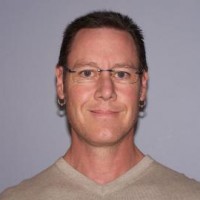When I was 9-years-old, my parents moved our family from the San Fernando Valley (Los Angeles suburbs) to a very rural area in southern Oregon. It was a move from the world of strip malls to a place where cows out-numbered people. The little town of Williams had one country store, one gas station/garage, one school, a post-office in a one-room shack, an occasional restaurant, and three churches.
At first it was total culture shock. But as I made new friends and integrated into the very small school, I learned to build forts in the woods, how to catch and clean fish, which berries were edible and which were not, and that poison oak is really nasty.
At the time I had no idea how lucky I was and what a great thing my parents had done for our family. I did not grow up playing video games or watching television. We played in the woods, we fished, we floated on inner-tubes in the creeks and ponds, and we caught bull frogs.
The only rule when we were young was be home by sunset.
So many kids now have never had the experience of nature, have never known a time or place where they could play – no rules, no structure – in nature and experience that freedom.
Richard Louv ( Children and Nature Network) has identified what happens when kids grow up in a concrete, urban world – nature-deficit disorder. His book Last Child in the Woods has created a movement around healing the disconnection between children and nature.
All in the Mind, the outstanding Australian radio show, spoke with him last week. Louv was in Australia for the Melbourne Conversations event, Healthy Parks=Healthy People?, in which he and two other authorities discussed the benefits of being in nature for human health and well-being (all moderated by Natasha Mitchell of All in the Mind).
These videos present a great argument for why we need natural places, and why our children need to experience nature in order to grow up as healthy human beings (and, I would add, why we need experiences of nature as adults, as well).
In this Melbourne Conversations event, Healthy Parks=Healthy People?, three world authorities discuss the benefits of contact with nature for human health and well-being.
Acclaimed author Richard Louv has identified a phenomenon: nature-deficit disorder. His book Last Child in the Woods galvanized an international movement around the disconnection between children and nature; Steve Coleman leads Washington DC’s 16-year-old alliance of public/private parks partnerships, which manages restoration, stewardship, and programming of their parks across the city; and Mardie Townsend is involved, in collaboration with Parks Victoria and other partner organizations, in investigating the benefits of contact with nature for human health and well-being. The session is chaired by Natasha Mitchell (journalist and presenter, ABC Radio National’s All in the Mind).
Presented by the City of Melbourne in collaboration with People & Parks Foundation and Sport and Recreation Victoria, Department of Planning and Community Development to coincide with the Healthy Parks Healthy People Congress.
BMW Edge, Melbourne, April 2010
Part One:
A video used to be embedded here but the service that it was hosted on has shut down.
Part Two:
A video used to be embedded here but the service that it was hosted on has shut down.
Part Three:
A video used to be embedded here but the service that it was hosted on has shut down.


 Share on bsky
Share on bsky




Read 6 comments and reply